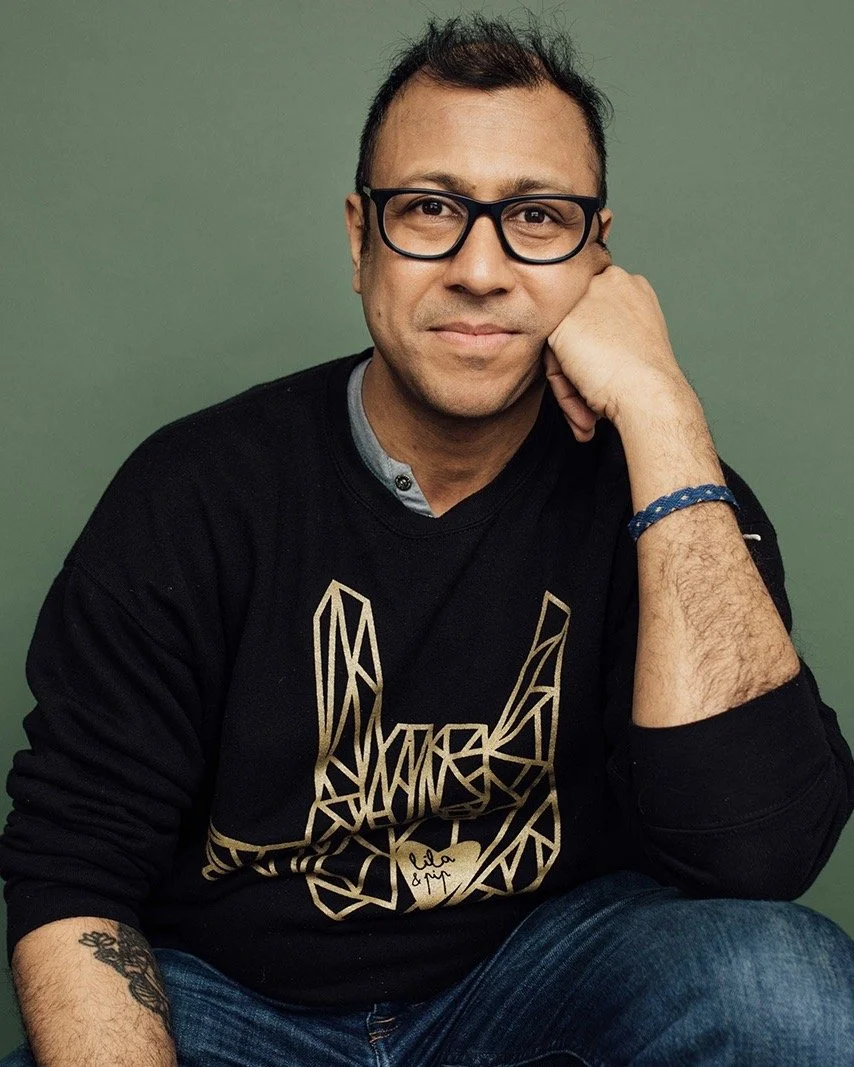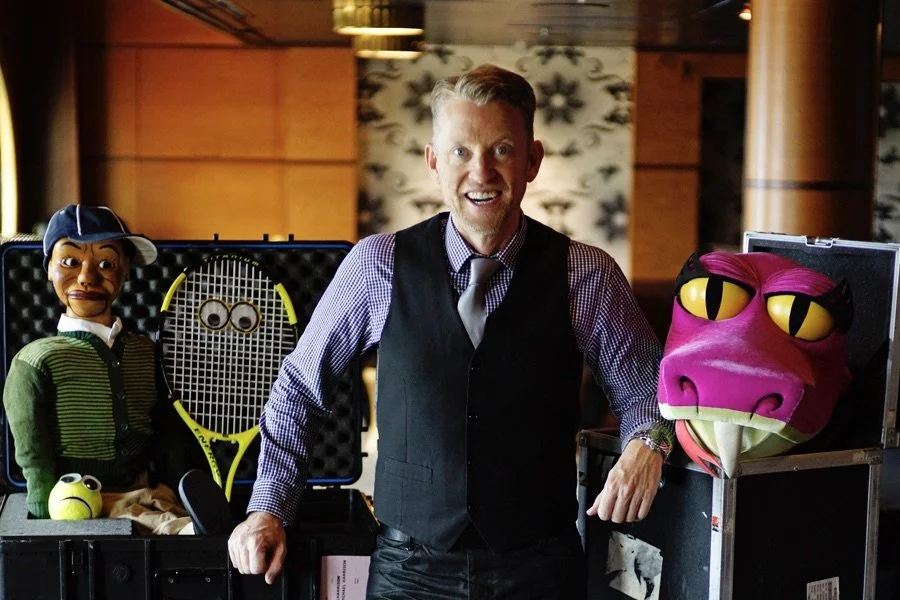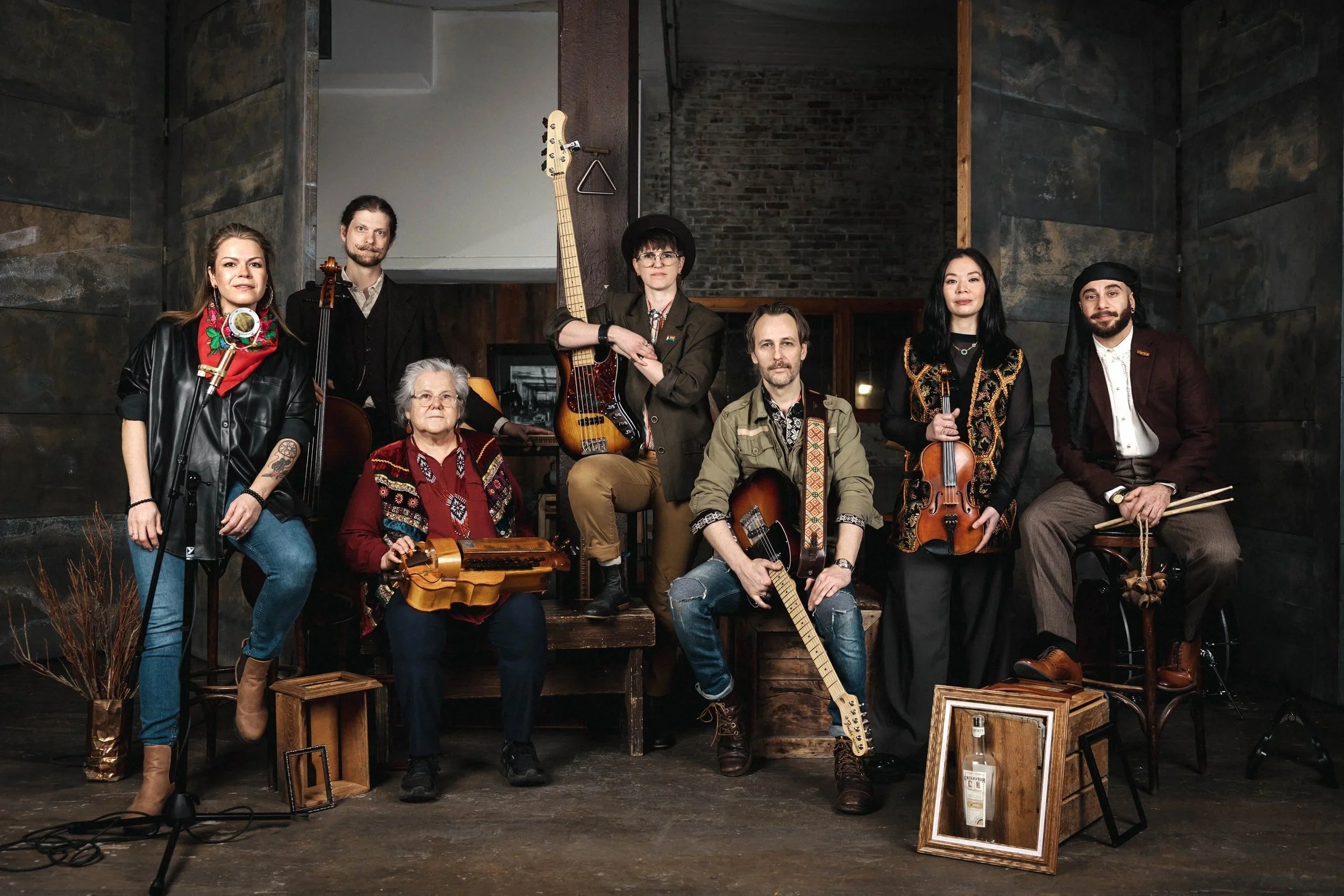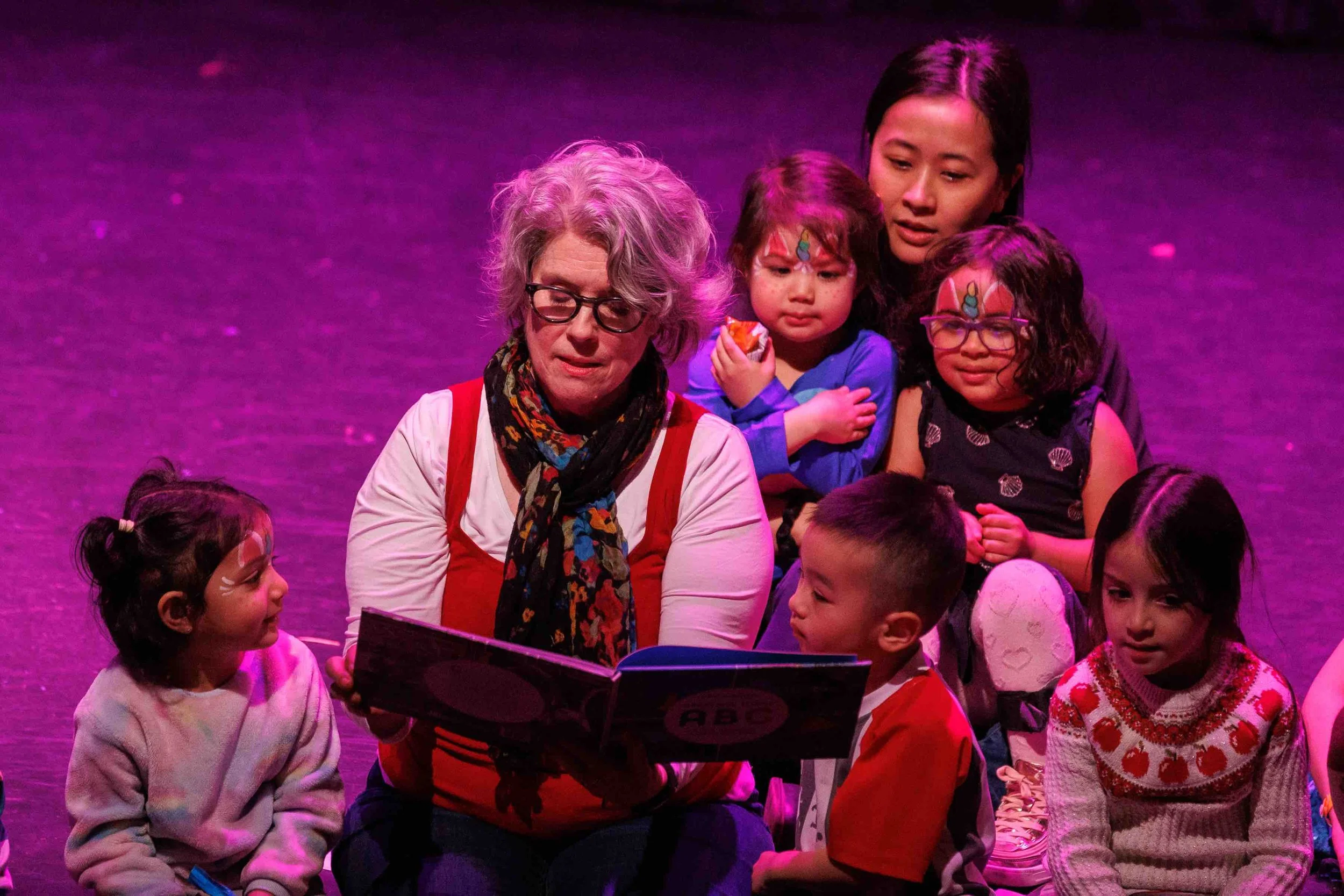In What You Won’t Do For Love, David Suzuki and Tara Cullis consider love's role in environmental activism
Why Not Theatre co-artistic directors Ravi Jain and Miriam Fernandes delve into origins and meaning of play presented by Vancouver Civic Theatres
From left: Miriam Fernandes, David Suzuki, Tara Cullis, and Sturla Alvsvaag in What You Won’t Do For Love. Photo courtesy of Why Not Theatre
Vancouver Civic Theatres presents Why Not Theatre’s What You Won’t Do For Love at the Vancouver Playhouse from February 13 to 17 at 7:30 pm
RENOWNED ENVIRONMENTAL ACTIVIST, geneticist, and broadcaster David Suzuki has a lifetime full of remarkable stories to share.
The third-generation Japanese Canadian became a household name and familiar face to many in 1979 when he began hosting the ever-popular CBC documentary series The Nature of Things, a position he held till 2023, staying at the forefront of the fight against global warming. Suzuki has trekked to the Amazon rainforest and Antarctica; authored over 50 books; earned 29 honorary degrees from institutions across Canada, the U.S., and Australia; and even visited King Charles after the then-prince hand-wrote him a 13-page letter in 1990 praising his environmental activism.
But perhaps what’s most notable about his accomplishments is that they were all achieved with his wife, award-winning writer and former Harvard University professor Tara Cullis, right by his side. Cullis played a huge part in co-founding the David Suzuki Foundation in 1990, and founded the Coastal First Nations Great Bear Initiative (a project to help initiate a conservation-based economy under First Nations leadership) in 2000.
This fascinating dynamic of love and partnership between Suzuki and Cullis, who have been married for more than 50 years, is the basis for Why Not Theatre’s new play What You Won’t Do For Love. The company’s co-artistic directors (and best friends) Ravi Jain and Miriam Fernandes worked with the couple to develop an intimate production that explores how love for one another can inspire folks to take action for the planet. The project marks Suzuki’s first foray into theatre performance.
It was after seven days of boardroom meetings between the four luminaries, during which Cullis and Suzuki shared an innumerable amount of what Jain calls “roller coaster” stories, that a vision for the play finally began to take shape.
“We wanted the audience to experience what we were experiencing, what changed us over that week—which was spending time with them, and sitting around a dinner table with two extraordinary people who are also just as ordinary as the rest of us,” Fernandes tells Stir over a Zoom call, sitting next to Jain. “They have kids. They struggle with being hopeful. They struggle with living in the world that we live in. And yet they do such extraordinary things. And we felt inspired and moved by that, and we thought, ‘What an amazing thing it would be if we could create this experience for a whole audience.’”
What You Won’t Do For Love premiered at Toronto’s Luminato Festival in 2022 to sold-out audiences.
Jain first had the idea to reach out to Suzuki about a play after creating a theatre adaptation of journalist Alanna Mitchell’s novel Sea Sick: The Global Ocean in Crisis back in 2013, which told the story of the major impact that carbon is having on the world’s oceans. When he expressed interest in working with Suzuki on his next play to continue spreading awareness about the climate crisis, Mitchell put the two in touch.
The process was slow. Jain initially pitched Suzuki Bertolt Brecht’s Life of Galileo, which chronicles 17th-century astronomer Galileo Galilei’s struggle to ascertain scientific truths in the face of retribution from the Catholic church, to which Suzuki said he doesn’t memorize lines. Not to be discouraged, Jain met up with the environmentalist in Toronto, and got to know him better. It was then that Jain noticed how much Suzuki talks about his family—his wife, kids, and grandkids—and the monumental influence they have on his life.
Jain began to put the puzzle pieces of a play together in his head. “He always talks about dying,” Jain tells Stir of Suzuki, who’s now 87 years old. “He’s like, ‘I don’t have time, I’m gonna die.’” Knowing that theatre productions can often take three or four years to create, Jain asked Suzuki if he could make a show with both him and Cullis so they could continue spending time together. Suzuki replied something to the effect of, “‘You phone her and ask her,’” recalls Jain with a laugh. Cullis, to Jain’s delight, said yes.
Ravi Jain.
In What You Won’t Do For Love, Cullis and Suzuki sit around a dining room table with Fernandes and her husband, fellow actor Sturla Alvsvaag. They sift through a photographic and oral history of some of their most cherished moments as a couple and environmentalists, melding love and activism seamlessly. It’s worth noting that the play is 98-percent scripted (“There’s no way to script David Suzuki—I mean, he’s always gonna take a little turn,” says Fernandes with a laugh), and that the foursome hold scripts in their hands so no real memorization is required. The lines they speak are their exact words from hours of prior discussions, each of which Fernandes painstakingly transcribed.
“I think we all know who David Suzuki is,” Fernandes explains, “and we have an idea of this amazing, heroic person. And David is that person. But I think part of the joy of the show is that you get to meet Tara, and you learn—and David says this himself—how much of the work that he gets credit for is really thanks to Tara. And so you get to meet Tara, and you get to see how ferocious, and hardworking, and relentless she is about achieving these targets.”
Fernandes says that performing with the couple alongside her own husband has been a huge gift in both her life and career. The show offers the perfect grounds to discuss inheriting a responsibility to save the planet, having children in a world where the future often seems dire, and maintaining profound love through it all.
Cullis and Suzuki’s legacy is carried on through their children. The pair’s eldest daughter, environmental activist Severn Cullis-Suzuki, is now executive director of the David Suzuki Foundation. Their youngest, marine biologist Sarika Cullis-Suzuki, is the new host of The Nature of Things alongside molecular scientist Anthony Morgan. (This year marks the 63rd season of the show, which is the world’s longest-running science television program.)
“To me, what’s been really inspiring is recognizing that everybody actually has a role to play in this,” says Fernandes. “We’re not all going to be David Suzuki, but there are so many ways for us all to contribute our skills to this crisis. And actually, we’ll need everybody—we’ll need the diversity of thought, and ideas, and ways of working—to solve it.”
A post-show talkback takes place after each of the Vancouver Playhouse performances from February 13 to 17. They’re a staple for the show, says Jain, and audience members always have questions.
“A lot of times they want a solution,” he says. “‘What should I do?’ ‘What can I do?’ ‘Should I recycle more?’ ‘Should I get more efficient heating in my home?’ ‘What should I do?’ And I think what has become so clear to me is that the answer is really simple. It’s do one thing, which is change your own relationship to nature. If you can think in every action you do that you have a responsibility to give back, you will make different choices.
“And it’s definitely affected me,” the theatre artist continues. “I feel guilty when I make the bad choice, which I do, for sure. And I feel very proud when I make the good choice. And the more I can train myself to make better choices, that’s based on my underlying root change of my own responsibility and relationship to nature. If I really believe this, if I really fall in love and say, ‘I am responsible. I take that responsibility,’ then it will change everything that I do.”














